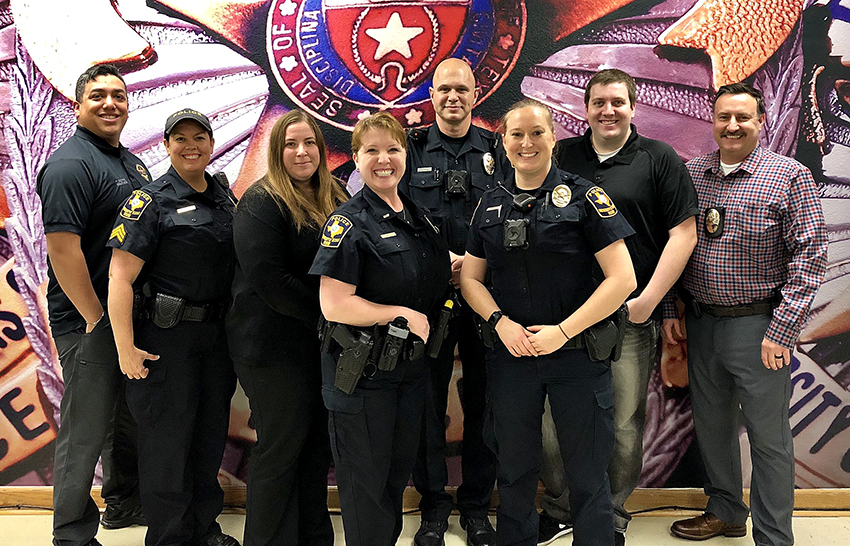Several UT Police Department officers received training and competed last week at Texas State University’s annual Crisis Negotiation Competition and Seminar.
Ten members of UTPD’s Crisis Negotiation Unit tested their skills against approximately 300 negotiators divided into 26 other teams last Wednesday. Despite earning second place in 2018, the team failed to place at this year’s event.
“We know we had good scores, we just didn’t make the top five,” UTPD Lt. Laura Davis said.
The competition, which simulates hostage situations, is designed to reinforce any training previously received by the teams and prepare them for actual crises.
“A lot of these situations are from things that have happened or things that could happen that we’ve seen bits and pieces of in reality,” Davis said.
Davis, who participated as UTPD’s team leader, said a panel of trained negotiators, psychologists and former law enforcement personnel evaluated each team’s performance in these situations and determined the results. She said it was a high-profile event with intense competition.
“They gave us the best feedback and made sure that we’re doing everything we can, so if something does happen on campus, we can deal with it and know that we’re ready,” Davis said.
Wayman Mullins, Texas State criminology professor, founded the competition 29 years ago and helped organize it this year. Mullins said the competition started between two teams and gradually evolved into a national training event.
“The value is not the competition, the value is the training,” Mullins said. “The teams that come are all experienced negotiators. We just try to add to their tool box a little bit. The competition is kept in there because of the stress it introduces.”
Mullins said they relied on roughly 60 student actors throughout the competition to create scenarios that replicate the pressure of a real-life crisis.
“First responders are take-charge, type-A kind of people,” Mullins said. “They want to win just like a sports team wants to win, and their peers are watching and evaluating them, so all that adds to the stress.”
Davis said this is great exposure for the UTPD Crisis Negotiation Unit, which has not yet been deployed for a crisis.
“Most of our situations have been resolved by the first-line officer,” Davis said. “Our team is there for prolonged incidents … We’re in the middle of a big city, and we have big city issues that we need to be ready to address.”
Radio-television-film sophomore Gracie McCallum said she sees how the competition helps make the campus safer during crises.
“These things don’t happen often, so any practice with it is a good thing for the police,” McCallum said.
As for next year’s competition, Davis hopes for improvement.
“Whether it’s our best game or not, we need to continue to train,” Davis said. “We’re going to regroup and figure out all the things we can do better. We’ll do much better next year I know.”




















